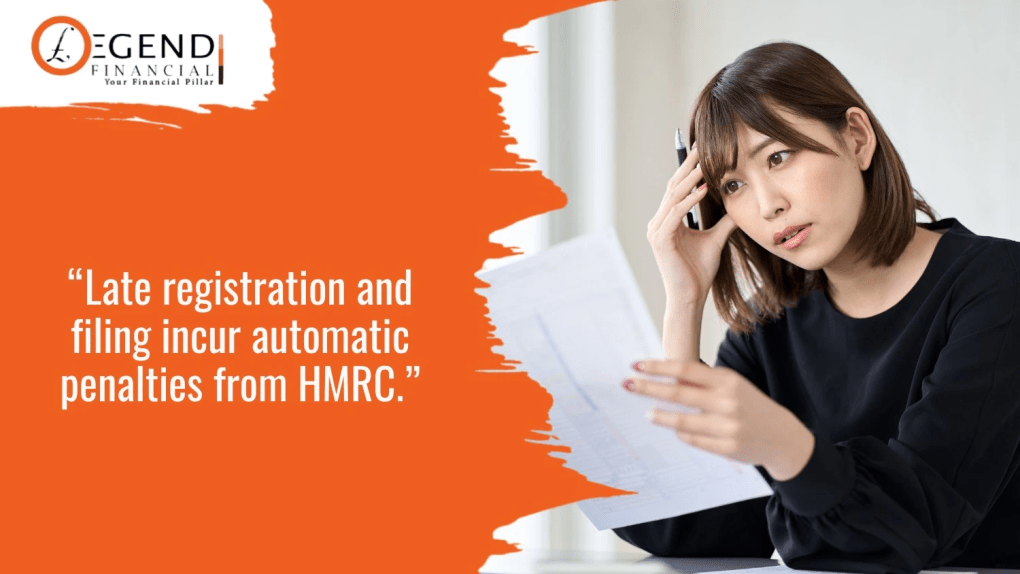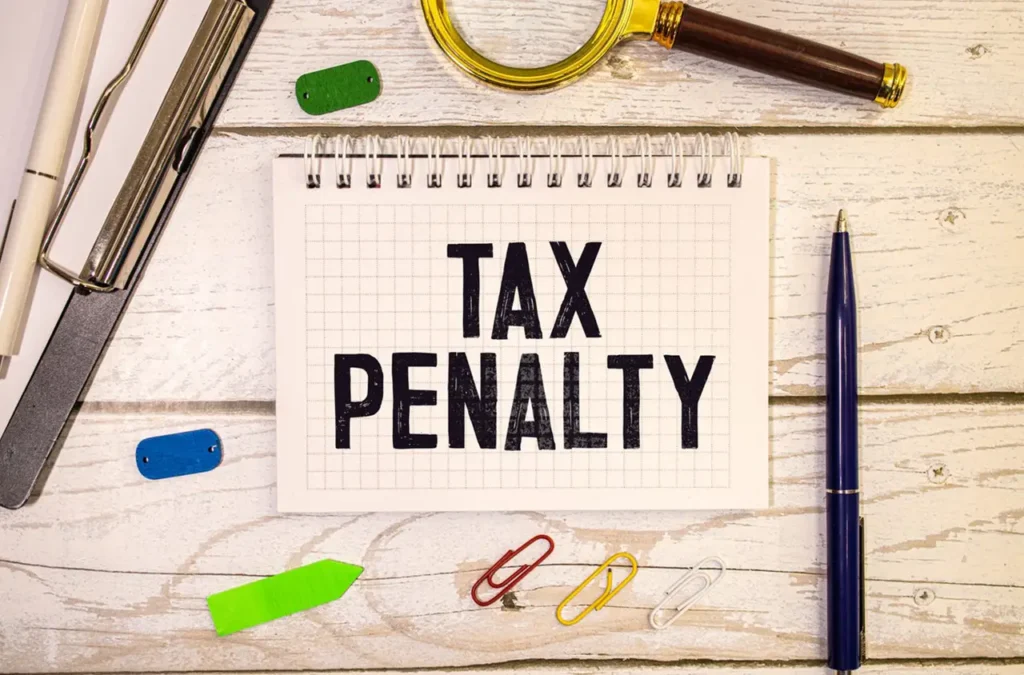Contents
Even if there is no tax to pay, a filing deadline missed will automatically mean a late tax return penalty. If you are due any tax, the bill may ultimately accumulate into thousands of pounds if not proactively addressed, considering the penalties and interest. Here is how the late filing penalty progresses in the UK, how to appeal to HMRC, and other information crucial to self-assessment filers.
Late Tax Return Penalty: An Overview
Taxes are usually deducted through the Pay as You Earn (PAYE) system, but this only applies to employees. If you are one of the self-employed in the UK, you will need to pay tax by registering for and filing a self-assessment tax return.
Missing any of the tax deadlines will mean penalty and/or interest. Tax fines associated with tax returns include:
- Late registration as self-employed
- Late filing of tax return
- Late tax payment
- Interest for late tax payment
- Failure to report chargeability to HMRC
- Failure to report self-assessment errors to HMRC
The penalty only applies to overdue tax payments and returns. Interest, on the other hand, is charged on unpaid tax and penalty. Visit A Comprehensive Self Assessment Guide for Beginners [Latest] for full details.

Penalties for Late Filing of Tax Return
If you are already registered for self assessment and HMRC did not tell you to stop submitting tax returns, you will be automatically penalised once you miss the filing deadline. Gov.UK offers a tool to check if you currently need to send a tax return.
If you miss the tax filing deadline, you will face an initial penalty of £100 from the first day of delay up to the third month even if you have no tax obligation. The longer you delay, the more penalties you incur:
- 3 months late – £10 per day for up to 90 days
- 6 months late – the higher of £300 or 5% of the tax due
- 12 months late – an additional £300 or 5% of the tax due, whichever is greater.
The total late tax return penalty if no tax due UK can amount to £1,600 in a year, including interest, if you have no tax to pay and keep on delaying up to a year. The late tax return penalty UK can be higher if you owe any tax or if you are subject to delinquent tax penalties (e.g., deliberate non-filing or withholding of informing with HMRC).
Extra Tip: The penalty for late self-assessment filings differs for limited companies, as the latter submits company tax returns. Limited companies pay higher penalties for delayed filings, starting at £100 from day one up to a month.
Visit relevant article: How to Pay Corporation Tax Online for Small Businesses
Deadlines for Submitting Self Assessments
Every self-employed with a UK tax residence, including non-residents with UK gains and income, must file self-assessments by the following deadlines:
- 31 October for paper returns
- 31 January for online returns
Company tax and VAT returns follow different deadlines. Other self-assessment deadlines you may need to keep in mind are:
- 5 October for self-assessment registration
- 31 January and 31 July for Payments on Account
- 31 January for tax payment
Stay Updated! On 6 April 2026, Making Tax Digital for Income Tax Self Assessments will officially start.
How to Appeal Tax Return Penalties
HMRC allows a taxpayer with a reasonable excuse to make a late tax return penalty appeal within 30 days of the penalty notice. Some acceptable excuses include:
- natural disasters
- serious illness
- computer issues on your end
- death of a partner or relative on the day of deadline
- technical issues with HMRC’s online filing tax system
Ignorance of the law is not usually considered a reasonable excuse, but exceptions may apply based on specific facts. The same applies to those who rely on others to file tax returns. It is generally not an acceptable excuse unless serious illness is involved.
Good News! If your appeal is successful, the penalties paid will be refunded with interest. However, if HMRC disagrees, you can escalate the matter by requesting an internal review or appealing to the tax courts.
How to Reduce Tax Return Penalties
Here are how you can reduce late tax return penalty HMRC:
- If you claim a reasonable excuse, file a late tax return immediately before the excuse no longer applies.
- File a return immediately once you get the first penalty to prevent penalties and interest from adding up.
- File an extension through HMRC’S Time-to-Pay arrangement if you anticipate you cannot pay tax dues on time.
Foolproof Step: Hiring tax experts will ensure you are compliant throughout the tax cycle, from registering for self-assessment to filing returns. Tax professionals’ core objective is to reduce your tax bill overall, necessitating tax planning and prompt HMRC compliance.
FAQs on UK Tax Return
Claiming tax refunds or rebate is only allowed for up to four years.
Completing self-assessment tax forms can be easy if you have prepared everything needed and ahead of time.
To prevent double taxation, non-residents are generally not obliged to file UK returns nor pay taxes. However, in some situations such as temporary non-residence rules, they will have to submit UK tax returns.
Making National Insurance contributions is mandatory for UK residents over 16. Self-employed people usually pay Class 2 NI along with Class 4 NI.
Why Legend Financial for Your Tax Returns
Do not wait until tax filing deadlines arrive! If you are intimidated by how difficult filing a self-assessment sounds or lack the time to fulfill your obligations, leave it to the experts. Legend Financial has helped a lot of clients efficiently and promptly file tax returns for over ten years. Book a free enquiry with our tax professionals today!












